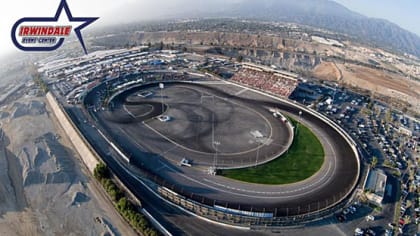LONG BEACH GRAND PRIX
Pole Qualifying at the Toyota Grand Prix
This article is from our archives and has not been updated and integrated with our "new" site yet... Even so, it's still awesome - so keep reading!
Published on Sun, Apr 17, 2016
By: The LACar Editorial Staff

By Brian Kennedy
IndyCar qualifying is probably more of interest to the diehard than to the casual fan. This is more so true now because they’ve gone away from the single flying lap format and adopted a multi-round format. If you’re at home watching on TV, this is easy to follow. If you’re in the crowd, like those in the windswept and cool(ish) bleachers in Long Beach on Saturday afternoon, you’d probably have a tough time knowing what’s going on. (Not that the thrill of seeing the cars fly by at insane speeds would be a bad thing.)
Unless, of course, you were sitting right near a big-screen, in which case you could follow there. You’d thus either have the best of both worlds—live cars plus a way to keep track—or you’d be saying to yourself, “If I were going to watch this on TV, why did I come all this way, anyhow?”
Whatever your preference, qualifying works like this: the grid is divided into two groups. In the case of the 2016 Long Beach Grand Prix, these were 10 and 11 cars big. They run for ten minutes, with the top six lap times in each group being cars that move on. Round two thus has 12 fast cars in it, and they take another ten minutes to figure out who the “Fast Six” are. Those drivers—on Saturday Castroneves, Dixon, Montoya, Kanaan, Power, and Pagenaud—go for the pole in yet another ten-minute open-track session.
Again in the final group, it’s a mass session, with each driver trying for clear track to post his best time. Personally, I don’t like that. There’s too much fussing about who will get a “clear lap.” Much better would be the old blast from the post method where drivers go out, run half a lap, and then hit the timing line and doing their best through the course.
On Saturday, some intrigue prevailed. The timing and scoring didn’t work for a while, so the series had to grab team data to determine who moved on from group two.
Then, in the final session, Power brought out a red by running through the end runoff area on the backstretch, and then stalling. This meant that he was automatically sixth. The other five posted lap times within about three-quarters of a second of each other. For news on the pole, keep reading.
Actually, the on-track excitement and escapades in the LBC started earlier on Saturday. Several cars hit or brushed the wall, including Hunter-Reay, Rossi, Sato (he actually lost control but regained it, barely, before tagging anything), and Rahal. He plastered the wall with his left front and had to have major repairs done before the qualifying session.
In the qualifying itself, group one had two rookies, Conor Daly and Max Chilton. The other rookie, Alexander Rossi, was in group two. None of the three made it out of their first round group. None thus starts in the top ten.
The top six cars are Chevrolets, with two Hondas trailing those. Young Rahal is way back in 17th, buried amongst the rookies, but at least ahead of the other famous-name guy in the field—Marco Andretti is dead last. Still, he’s only separated from first place by a second a lap. Seven of 21 drivers are from the US. The field has drivers representing 11 countries.

The pole winner was Helio Castroneves, with a time north of 105 mph average, a lap of 1:07.1246 seconds. This is his third Long Beach pole and second in a row at this track. It’s also his second consecutive pole in the series, as he took the one at Phoenix in the Series’ last stop. This race is typically won from the front of the grid, since passing is hard on the narrow street circuit. Sometimes, as fans of road and street racing know, strategy plays out to let someone come from the nether parts of the grid. Last year, Castroneves started on pole and finished second. Scott Dixon won the race. In 2014, repeat but surprise winner Mike Conway began 17th but ran a smart race and used strategy to come home on top. The strength of the field this year, though, is all at the front, so don’t look for a darkhorse. The track is just a shade under two miles long (1.968 miles). The 21 entrants will run 80 laps on Sunday afternoon for the trophy and the glory of being the champ of the most glamorous racing venue in the US outside of Indy. The race goes at 1:30 local time, but the festivities begin at 1. For more information about the Toyota Grand Prix of Long Beach, go to gplb.com.




